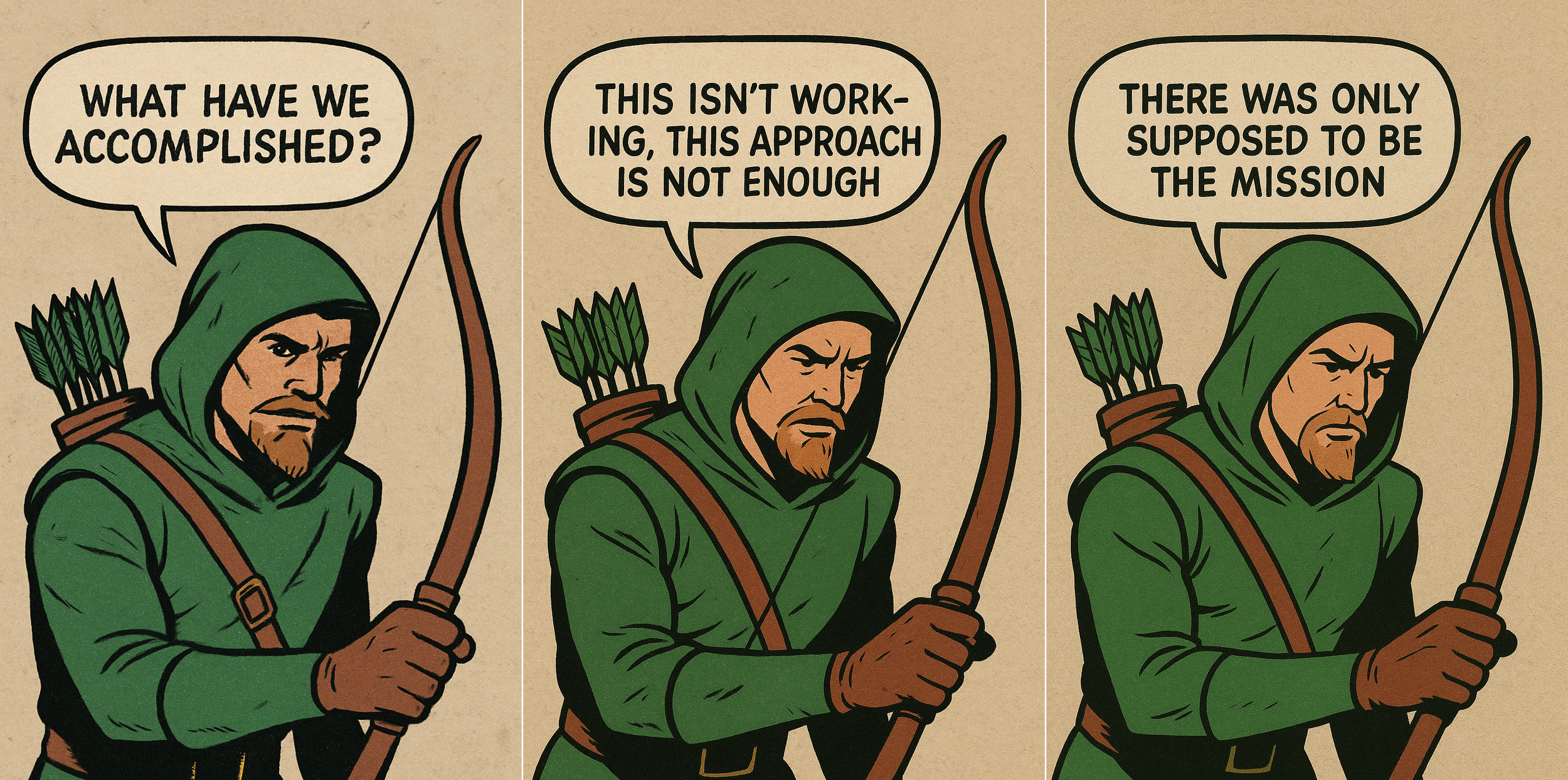The Zixxth SOLution: Why Fusion Will Fix What’s Broken
Welcome to the Green Arrow Conundrum.
Hello reader, I’m Torbin Zixx, founder of Zixxth SOLutions. I am an avid fan of comics, both DC & Marvel comics. The stories, the characters, and even the situations most of the time I find exciting and engaging.
I often find similarities between the hardships those heroes experience and human stories in the real-world. Because ultimately, that’s what those worlds are all about.
In the quest to make things better for the world, there’s one particular character - generally a brooding one - that always comes to mind.
In DC Comics, there is a character called Green Arrow who continuously doubts his own actions and convictions, often posing the question to his allies and fellow members of the Justice League: “What have we really done, what have we accomplished?”.
AI Generated Image
Now, I want you to think of regular old sustainability (without the Zixxth twist) like this hero’s heavily banked on conundrum.
Oliver Queen, as he is known to his closest friends and family, is frustrated when he feels like he’s not doing enough for the city he grew up in and swore to protect at any cost.
The key point that we need to keep in mind here is superheroes like him often focus on fighting the immediate problem - stopping the villains, saving the city, preventing the destruction of the world, that sort of thing.
But. Once the bad guys are defeated, the underlying ailments - corruption, inequality, or even environmental damage - are often left unresolved.
Now, why am I telling you this and what does it have to do with sustainability?
In the comics, Green Arrow, with his sharp eye, sees what’s happening and realizes that simply stopping the immediate harm isn’t enough. Depending on the version of the DC universe, he either feels like giving up or like he has to do more. But the answer the comic book devotee, the avid long-time series fan, will always have for him is: it wasn’t his job to fix things, that’s not what he signed up for.
His mission, from the day he donned his first forest-green hood, picked up a bow, and committed himself to being his city’s protector, was to fight evil and release his home from its grasp. And that, by the way, if you follow Bruce Wayne aka Batman's story, is just half the task that the Dark Knight chose to take on.
This is where I notice similarities between fictional stories and the struggles of the real world.
In sustainability, Green Arrow’s problem takes this form: you are trying to prevent environmental degradation, a time-dependent consequence, without addressing the root cause. You focus on minimizing damage - reducing emissions, using renewable energy - but you’re not actively fixing the systems that are already broken or building anything better.
You never asked the question: “Why is this happening in the first place? And why did we let it get this far?”.
You have only addressed one side of the equation: you stop the villain, but the city remains in ruin.
Now, fundamental sustainability is like working on both sides of the problem. You’re still stopping the dangerous consequences - addressing pollution, overconsumption, or deforestation - but you’re also tending to the sources that led to those issues.
This means fixing what’s broken, like regenerating soil health, uplifting communities that have suffered from environmental harm, and looking at the origin of these consequences and developing safeguards against their repeat.
This means you go even further - you enhance and rebuild, making the systems stronger and more resilient than before.
Why The Zixxth SOLution matters now more than ever is that everyone, whether steeped in sustainability or utterly clueless about it, is asking the same question as this fictional comic book character, Green Arrow: “Why isn’t it working?”
The answer is you never stopped to ask why it’s happening.
Imagine Green Arrow not only stopping the bad guys but also rebuilding the city - creating sustainable housing, restoring natural landscapes, and empowering citizens with resources to fend for themselves.
That’s fundamental sustainability: not just surviving the crisis but transforming and strengthening what was damaged, so it can come back greater than it was and thrive in the long-term.


